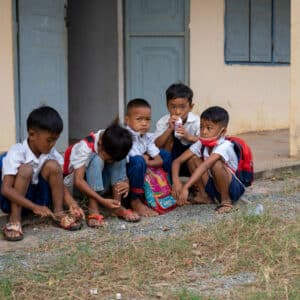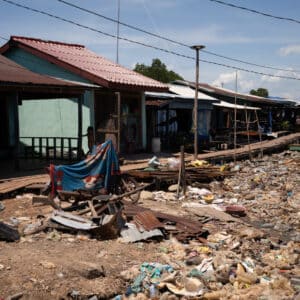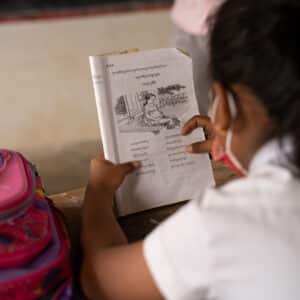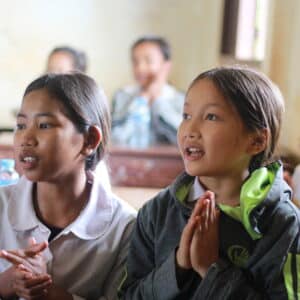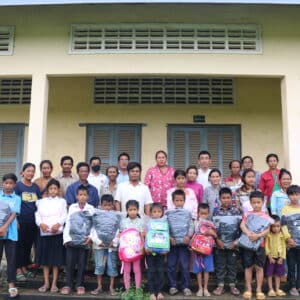Climate change is likely to increase the risks of malnutrition, especially for the most vulnerable children. In Laos, we’re supporting quality education, in particular school gardens,to raise awareness and address climate change and malnutrition.
Climate change also increases the risks of malnutrition by reducing fish stocks and agricultural yields. Studies show that it could increase stunting in children by 62% in 2050 and the number of undernourished children by 25.2 million (For a climate against hunger, Action contre la Faim, 2018). In Laos, where nearly a third of children are stunted and nearly a tenth are emaciated due to poor nutrition, we are building kitchens and providing meals in 18 rural schools in Vientiane province.
An expected increase in malnutrition
We train parents and community members in nutrition, vegetable gardening, growing, planting and cooking, and then offer them jobs as cooks in schools, so that they can play a key role in promoting children’s health and well-being. « I learned how to plan the menu, what ingredients to buy, how to cook them and how to manage our resources and time » says Sommathid Sisompheang, a teacher at Pakchan Primary School who is in charge of school catering activities at her school. « Since we started the school meals, teachers and community members in the village have learned a lot, especially about ingredients and the possibility of having more variety in the menus we cook » she adds.
Developing school gardens
Participants in our training courses also have the opportunity to visit an organic market gardening centre in a neighbouring village and enhance their knowledge. These exchanges have enabled four of the schools we work with to develop gardens and improve their cultivation methods and to diversify into other vegetables such as long beans and lettuce and fruits such as bananas and watermelons. The development of school gardens is indeed one of the most effective tools today for diversifying meals and bringing students closer to nature. Research has shown that students who participate in classroom gardening programmes develop a greater concern and awareness for conservation and resource allocation than children who do not and express more positive perspectives on nature, gardening and environmental issues. In particular, this experience helps students understand and appreciate how their food is grown and teaches them life skills such as cooperation, motivation, problem-solving, teamwork, planning and critical thinking.





